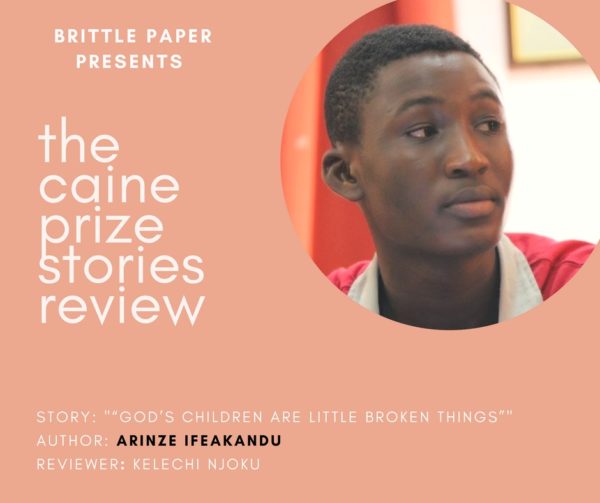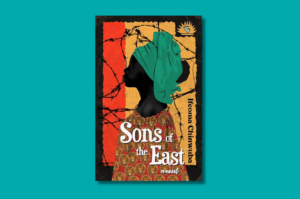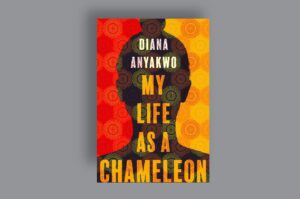As you probably already know, the Caine Prize for African Writing shortlist is out. It’s created quite a lot of buzz and excitement in the last few days. While we are still celebrating with the shortlistees, we also think it’s time to get serious and talk about these stories. Are they any good? What is interesting or innovative about them?
It has become a Brittle Paper tradition to review the five stories shortlisted. This year is no different. We love taking the lead in opening up conversations around the stories. We are particularly delighted to kick of this year’s Caine Prize story review series with Arinze Ifeakandu’s “God’s Children Are Little Broken Things.”
Ifeakandu is the first writer published by Brittle Paper before his shortlisting to be recognized by the Caine Prize. We published his nonfiction, “New City,” an exploration of the city of Kano, and his memoir, “What It Means to Feel Adrift,” a meditation on, well, what it means to feel adrift. We further published his interview with Chimamanda Ngozi Adichie, which, as its editor, he conducted for his university journal, The Muse, which we republished online. An alumni of the 2013 Farafina Creative Writing Workshop, he was a finalist for the 2015 BN Poetry Award. His shortlisted story—which won him an Emerging Writer Fellowship from A Public Space in 2015—was named in our list of “The 31 Best Pieces of 2016.” At 22, he is the Caine Prize’s second youngest ever shortlistee. But even more striking is that the story was written in 2013, in his second year in university when he was only 19.
Kelechi Njoku, 2017 Commonwealth Prize shortlistee, reviews his shortlisted story.
*
A Portrait of God’s Gorgeous Children: Arinze Ifeakandu’s “God’s Children Are Little Broken Things”
As an expansive story of a journey, Arinze Ifeakandu’s “God’s Children Are Little Broken Things” strolls with the sweeping strides of an epic, which makes it tempting to ask: Could this short story—at almost 8,000 words—be, someday, ‘stretched’ into a novel?
Put that question aside for a moment.
“God’s Children” is a love story: Lotanna and Kamsi are two male undergraduates who meet in the story’s very first sentence, and then go on to discover that the decision to love, or not, is one they have to take and retake, every day, in moments.
This story is a tender meditation on proximity and distance, between people and between places. Travelling from Nsukka to Kano to Enugu, the story demonstrates how the colouration of life in one location is not transferable onto another. The collapsing world Lotanna has left behind in Kano is an intrusion into the troubled world in Nsukka whose knots he struggles with untangling. They are two different problems; to solve them, he has to be where they are happening, and he has to tackle them one problem at a time. His girlfriend, Rachael, is distant from him and, for most of the story, physically absent. We never really get to know her, except through her giggles over the phone. These phone calls from Lotanna to her are so frantic he might as well be babbling to himself, leaving her lost. But she giggles, oblivious to being lost. We feel sorry for her. She is a log being shaken to life but—by way of cruel, subliminal allusion to the status of her relationship with Lotanna—she never opens her eyes; she stays comatose. Lotanna, on his part, constantly fiddles with his reach towards the truth about himself: sometimes, with Kamsi quietly holding him up, Lotanna pulls this truth close; other times, he abandons it without warning. It is in those moments of closeness with Kamsi that “God’s Children” loses some of its grief, begins to laugh a little, and even Lotanna’s fights with Kamsi are the confrontations of a man who realises how easily he could destroy the people he loves if he is not careful.
There is a remarkable scene that gathers this story’s complicated conflict in one place: Lotanna—home from school, in Kano—goes for a walk, away from his difficult family, until he arrives at a place called France Road. On this France Road lives a gay man he is in an avoidant acquaintanceship with. Had Lotanna continued walking from that point, he might have had to make a decision between going towards Bompai, where Kamsi lives, or Airport Road, where Rachael lives. So he stops walking, and goes back the way he had come—an action that, as ordinary as it is ruthless, even practical, hurls us back to where the story began: a point of futility, and unhappiness.
Dave, the guy who lives on France Road, is the only gay man in the story who is not unhappy. But we never see him; he is squared off from the other people in the story and their issues. Unlike Rachael, though, his obliviousness isn’t about any heartache he is in danger of being hit by, but about the heartache he symbolises to Lotanna. Yet, Dave is light and clarity, even if unfairly judged by the unsparing court of Lotanna’s mind—So, he stops walking, and goes back the way he had come.
On second, third, and fourth readings, Lotanna’s walk along France Road—78 words, two short paragraphs—stands out as the motif of the entire story.
The wealth of the prose in “God’s Children” is not to be found in the sentences themselves—that would be the wrong place to look (in a story that is about things carefully tucked out of sight)—because this wealth has been worked into the pores of the story’s people. They are gorgeous, these people. They express themselves to one another in moves so adroitly choreographed they never come off as remote-controlled; the tremulous dance of agony they perform on the page is the totality of their lived, natural experience. These people—Lotanna, Kamsi, Rachael, Mum, Dad—take complete charge of the reader’s engagement with them, letting him know that he must speak their language, or forget it.
Ifeakandu displays an awe-inspiring ability to access the tightest and most chromatic corners of his characters’ emotions. This is how he writes about Lotanna’s observation of Kamsi’s fragility:
It was in the days that followed that you learned the definition of the word gentleness. He was delicate, always lying in bed eating plantain chips.
And this is how sexual arousal is laid out for us:
He stifled a giggle (you would learn later that he did that often when he was turned on, stifle a giggle, so that it sounded like a snort).
Ifeakandu’s sentences pause often, seldom run, and are, sometimes, lambently reflective.
Even as “God’s Children” carries one of the most recognisable tribal marks of nascent queer writing—the Tortured Homosexual—the story rolls gently to soon reveal that Lotanna isn’t so much tortured as he is watchful. Somewhat like the character David in James Baldwin’s novel, Giovanni’s Room. Baldwin’s gay classic is a novel which, by the way, unspools with a lean purpose easily associated with the short story. A very long short story. This is not to say that the characters in “God’s Children” and Giovanni’s Room are terribly similar to each other, but that, at a roundtable, some of Ifeakandu’s characters would hold the interest of some of Baldwin’s creations: The fragile Kamsi paired with the broken-hearted version of Giovanni (who we only get to see in Part Two, Chapter 4, of the novel). And, of course, a more square-jawed Rachael would make best friends with Hella. But for differences in narrative points of view in both works, the sentence that launches David’s account of meeting his lover Giovanni almost completely twins the beginning of Lotanna and Kamsi’s romance.
Ifeakandu’s story opens this way:
You met in your second year.
And Chapter 2 in Part One of Baldwin’s novel opens like this:
I met Giovanni during my second year in Paris, when I had no money. (pg. 18)
So, again: Could “God’s Children” ‘grow’ to become a novel?
Yes, because any story can be a novel, really.
No, because a story doesn’t have to be a novel to be large.
There are textbook names for Lotanna’s problems, of course, but Ifeakandu never uses them; there are words for Kamsi’s delicateness but he is coy about them. Perhaps because to name these things here would be to adulterate their complexity, and leave them less hollowed out by terror, and shame.
In a decade where significant fiction that have non-heterosexual people in them has emerged from Africa—with Monica Arac de Nyeko’s “Jambula Tree” and Stanley Kenani’s “Love On Trial” and Chinelo Okparanta’s “America” having, previously, been recognised by the Caine Prize—“God’s Children” sets a fine standard that responds to the question of What To Do When Your Characters Are Gay—and I don’t know when we are going to witness something this wonderful again.
**************
About the Author:
 Kelechi Njoku swings between Lagos and Abuja as a freelance editor and ghost-writer. His story, “By Way of a Life Plot,” is shortlisted for the 2017 Commonwealth Short Story Prize. He was the West Africa Regional winner of the 2014 Writivism Short Story Prize, was shortlisted in Africa Book Club’s Short Reads (2014) and Naija Stories’ Best Short (2013). He has had work published in the Kalahari Review, Nigerians Talk LitMag, and Open Road Review, and has short fiction forthcoming in Litro.
Kelechi Njoku swings between Lagos and Abuja as a freelance editor and ghost-writer. His story, “By Way of a Life Plot,” is shortlisted for the 2017 Commonwealth Short Story Prize. He was the West Africa Regional winner of the 2014 Writivism Short Story Prize, was shortlisted in Africa Book Club’s Short Reads (2014) and Naija Stories’ Best Short (2013). He has had work published in the Kalahari Review, Nigerians Talk LitMag, and Open Road Review, and has short fiction forthcoming in Litro.










tochukwu June 03, 2017 18:14
Nonso, that's exactly what just happened to me!